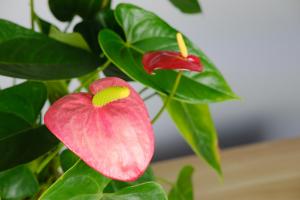Do Fish Eat Water Plants?
It's a common question among fish enthusiasts and pond owners: do fish eat water plants? The answer is not as straightforward as a simple yes or no, as it depends on the type of fish and the plants in question.
Herbivorous Fish
There are many species of fish that are considered herbivores, meaning they primarily eat plant matter. These fish typically feed on algae, aquatic plants, and other vegetation growing in their environment.
Examples of herbivorous fish include tilapia, grass carp, and plecos. These fish can help to keep aquatic plant growth in check in ponds and other bodies of water, making them a popular choice for pond owners who want to maintain a balance between fish and plants.
Carnivorous Fish
While some fish are herbivores, others are carnivores and prefer to feed on other fish or invertebrates. These fish may not be interested in eating water plants, and may even consider them a nuisance.
Examples of carnivorous fish include bass, pike, and catfish. These fish are typically more interested in moving prey such as small fish or insects, and may not even recognize water plants as a food source.
Omnivorous Fish
There are also many species of fish that are considered omnivores, meaning they eat both plant and animal matter. These fish will consume a variety of foods, including water plants, insects, and small fish.
Examples of omnivorous fish include koi, goldfish, and some species of cichlids. These fish can be a bit tricky when it comes to feeding plants, as they may be more interested in other foods that are available in their environment.
The Benefits of Water Plants for Fish
Despite the fact that not all fish eat water plants, there are many benefits to aquatic plants in fish habitats. Plants provide a number of benefits to aquatic environments, including increasing the oxygen levels in the water and providing shelter for fish and other creatures.
In addition, some species of fish may use aquatic plants as a spawning ground, laying their eggs on the leaves or stems of the plants. This can help to ensure the survival of the next generation of fish.
Conclusion
While not all fish are interested in eating water plants, there are many species of fish that are herbivorous and consume plant matter as part of their regular diet. Plants can also provide important benefits to fish habitats, making them an essential part of any healthy pond or aquatic environment.

 how many times do yo...
how many times do yo... how many planted tre...
how many planted tre... how many pine trees ...
how many pine trees ... how many pecan trees...
how many pecan trees... how many plants comp...
how many plants comp... how many plants can ...
how many plants can ... how many plants and ...
how many plants and ... how many pepper plan...
how many pepper plan...

































